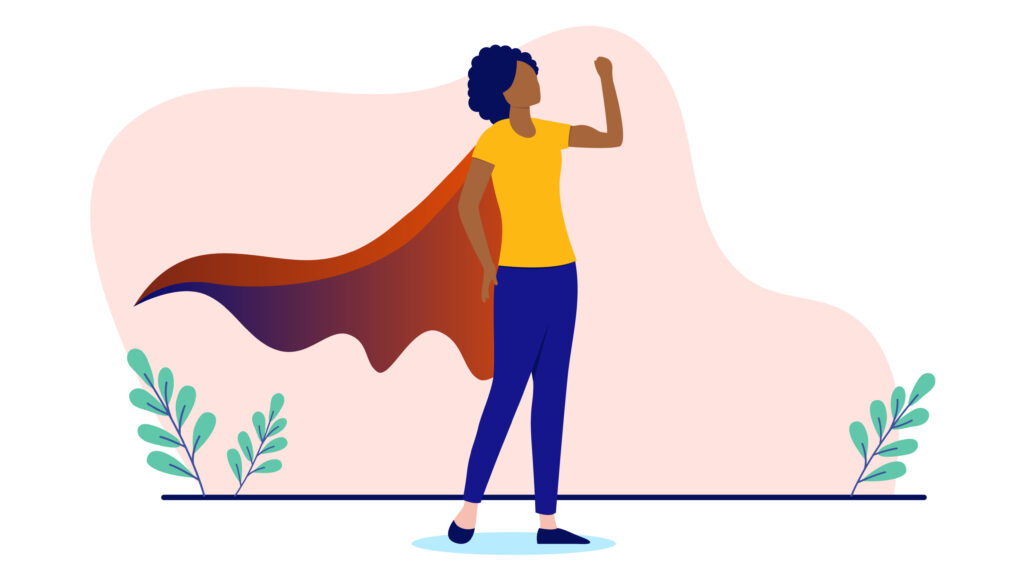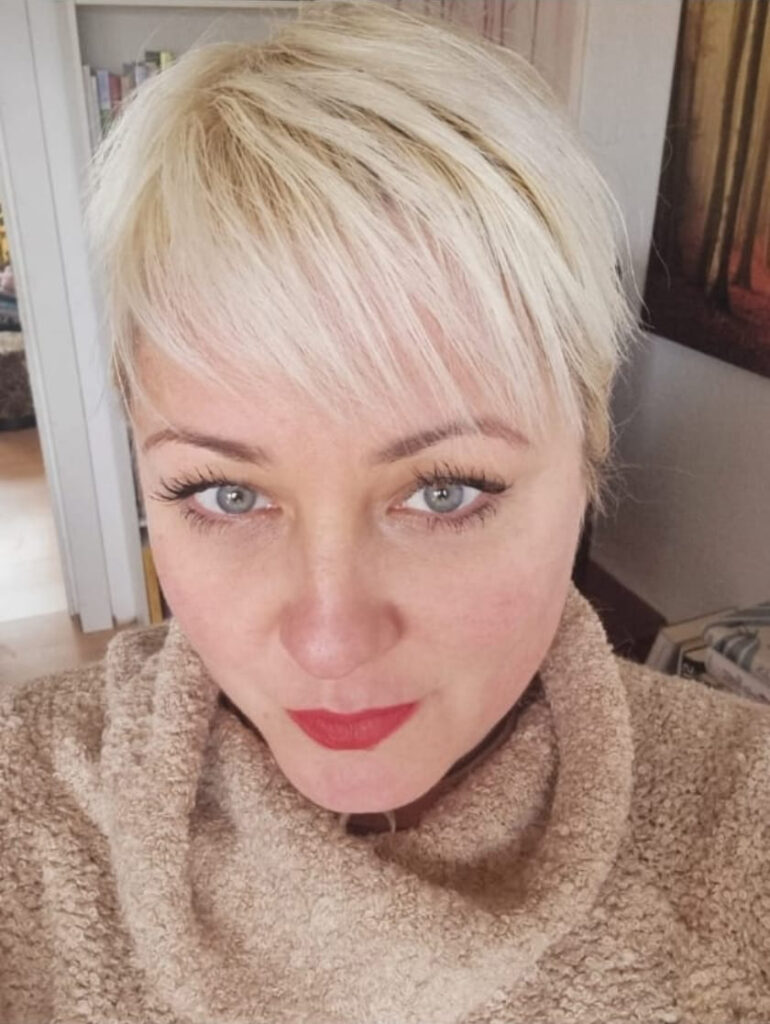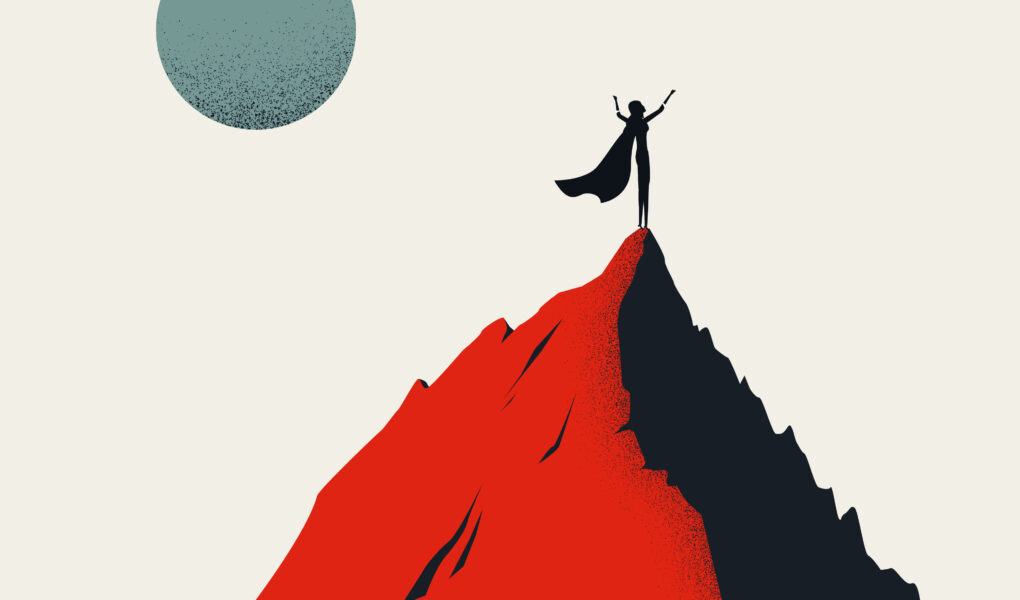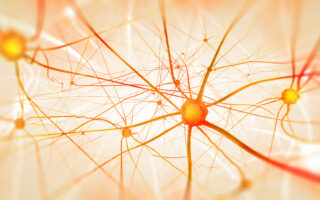Our mythical heroine’s journey (part 1)
Author: Sarah Rubal
Category: Women,Hero’s Journey
Issue: No. 97
Joseph Campbell’s well-known hero’s journey is read against the grain here. The author develops a female form of the hero’s journey that is based on completely different premises and takes a different view of the feminine. She distances herself from patriarchal history and mythology in order to write an alternative cultural history of women. A powerful departure that ends with the return of the goddess.
Anyone who deals with storytelling or with C. G. Jung cannot avoid the hero’s journey. From the Odyssey to the Epic of Gilgamesh and Star Wars to Harry Potter, it is said to form the basic pattern of all great human narratives. Myth researcher Joseph Campbell is the discoverer of this mythical narrative structure, which became the secret of Disney’s success. In twelve steps, the hero travels to the underworld and returns to the upper world with an elixir, of which he becomes the ruler. The word “ruler” is the first clue as to what we are dealing with here – male megalomania. The underworld , his own psyche, as a place where the male appropriates power.
Screenwriter Christopher Vogler adapted the Hero’s Journey for screenwriters and film. Since then, the hero’s journey has fascinated storytellers as well as seekers and psychonauts. It is considered the key to our soul and to our self-healing. But what is it about the hero’s journey that is already aimed at men per se? Where are they, the heroines? There have already been a few attempts to translate the Hero’s Journey for women, for example by Maureen Murdock, a student of Joseph Campbell, but this attempt can be considered a failure. It remains rooted in patriarchy. The woman does not become the protagonist of the hero’s journey, but its goal; she is the princess that the hero wins in the end. Can this really be the destiny for women? Self-determination for women? Not a chance. The woman gains nothing. She remains an object, does not become an active subject.
So where are they, the myths that tell us about how we become ourselves? Buried, lost, forgotten, because over the past 7,000 years our culture has been shaped above all by male thought structures, male stories and male aspirations. Female knowledge was lost in many cases because it was not passed on, but we can reconstruct it from myths, fairy tales, from knowledge preserved in indigenous cultures and from our own experience.

Patriarchal role patterns
As a biographer, I meet many women and I have noticed that they all spoke of a major crisis in their lives that ultimately helped them to find themselves and free themselves from patriarchal role models. It is often women in their 40s who suddenly realize that everything they were promised as “happiness” in their early 20s has not lived up to its promise. Partner, mother role, career woman, these are all roles that are given to us from the outside and that we adopt without being asked because they seem “natural” to us, as they are part of our lived culture and we find them millions of times in our environment in advertising, films, books and role models.
Have we ever asked ourselves whether these roles really suit us, whether they are even suitable for making us happy? And what does happiness even mean for us women?
The women portrayed are often successful, creative, beautiful, they are independent and self-determined, they fulfil everything that is demanded of them externally in order to fit into this society, they strive for self-realization and happiness, but this is exactly what the women I encountered simply do not want to achieve. Does the male hero’s journey not work for women? No matter how often I used the hero’s journey in my stories, it simply didn’t work for female protagonists. Although there were attempts to translate them in a “female” way, so to speak, they all remained rooted in patriarchal discourse. C. G. Jung himself was of the opinion that the inner lives of women and their development of consciousness could not be as exciting as that of men. I found a reference to what bothered me about the hero’s journey in the misunderstood feminist Mary Daly. It was a single sentence in which she recounted a conversation with Joseph Campbell, who said that women didn’t need the hero’s journey, they “were there long ago”.

A remarkable sentence that hardly anyone paid attention to because Mary Daly’s analysis itself is considered a mystery, if only because of her language. What Joseph Campbell meant was that women do not have to overcome the separation from the self, from the unconscious and the world itself, because they are connected to it in a different way. This is probably true of the primordial state of the feminine and is supported in many ways by research, whether it is the use of the left hemisphere of the brain until the end of fertility or the grandmother paradox, but almost 6,000 years of patriarchy have left us women with what can be called a collective, transgenerational trauma. We are the survivors. The resisters are dead.

About the author
Sarah Rubal is an author, ghostwriter and screenwriter. After studying history and ethnology in Frankfurt, she spent time with indigenous people in North America, particularly the Lenape (Delaware). The search for female liberation in harmony with spirituality has accompanied her for many years. She lives near Frankfurt am Main with her children. She is the author of several books, including children’s books on indigenous myths.
This article was originally published on the German website: Die Heimkehr der Göttin




